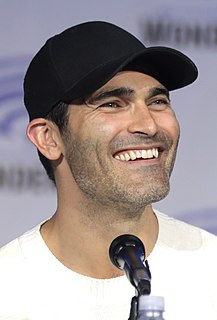A Quote by Emma Walton Hamilton
It might be helping to explore a story visually by going to see a museum exhibit that's relevant to something that somebody's reading, or going to see a show or listening to a piece of music or cooking a meal that's in one of the stories, something practical, something kinesthetic that draws the reader in and helps them to experience the story for themselves. Those are all ways I think we can kind of come in the back door and help kids find the joy, as opposed to the chore or responsibility, of reading.
Quote Topics
Related Quotes
As a reader, when the writer gets sentimental, you drift, because there's something fishy going on there. You recognize a moment that's largely about the writer and the writer's own need to believe in something that might not in fact exist. As a reader, you think, 'Where did the story go? Where did the person I'm reading about go?'
One of the ways in which writers most show their inventiveness is in the things they tell us about how they write. Generally speaking, I don't like to make a plan before I've written a story. I find it kills the story - deadens it, makes it uninteresting. Unless I'm surprised by something in a story, the reader's not going to be surprised either.
I've gotten a little superstitious about listening to music when I write. Once a story is going somewhere, I keep listening to the same music whenever I work on that story. It seems to help me keep in voice, and alternatively, if I need to make some kind of dramatic shift, I'll go and put on something different to shake myself awake...
For me, I think it's such an important thing to hear other people's stories, because you do find ways that either you can learn something from them, or you can identify with something that they've gone through. You realize that maybe what you're going through in life isn't just specific to you, that somebody else understands it, or you talk to someone and all of sudden you see something in a completely different way because of what they've said to you or shared with you.
Writing two stories [in the Thorn and the Blossom] about the same set of events that were complete stories in themselves, but also added up to a larger story. As I was writing them, I kept going back and forth, because something would happen in one story that would have to be reflected in the other story. And yet the same event would also have to be perceived in different ways by Brendan and Evelyn, because they are different people with their own interpretations.
In any case, do you really think kids even want something that is relevant to their daily lives? You think something practical like compound interest is going to get them excited? People enjoy fantasy, and that is just what mathematics can provide - a relief from daily life, an anodyne to the practical workaday world.
Writing something down and processing it, sitting with a text and a story, editing and rewriting new drafts - that entire process helps clarify something for myself. Depending on the person, the act of trying to tell your story helps you understand yourself better, helps you come to terms with something that happened.
I was with All Pro Dad, and I was coaching. People recognized me as a coach. They might see my face and say, 'What's going on there, is that something with the Colts or the Buccaneers?' Then they realize, 'This is something with my kids; let me explore.' So I think that helped, that name recognition.
If you have to become a filmmaker, find a story that takes you away, and tell that story. Don't think about whether it's going to sell, or whether it's going to make money, or whether it's going to appeal to distributors. Do something from the heart that really matters, and then you'll do something good.
I think that ties into our name and the meaning behind our name, going Against the Current. We don't really want to fit in to one section. If we're able to be grouped into one category then we've become something that already exists, probably. We want all of those kids that would come out to that pizza shop to come to our show and all of those kids who know us from the radio to come to that show. We have kids that come to our show that have been coming to concerts for years, and ones that it's their first concert and they just wanted to see it. I think that's the best way to do it.
I love sitting down with my friends at dinner and actually telling them a story, as opposed to going, "Hey, did you see that thing I posted on Instagram?" For me, I would so much rather sit there and actually share a story with somebody and have somebody tell me about their trip, or things like that. I don't need to see it.
I don't want to stand with somebody's praise. Whereas now when people come up to me, they say, "I love the bookstore" and "Kids! Come here, come here! This is the woman who owns the bookstore." That's incredible. I can say to that, "Thank you for shopping local. Thank you for coming in. What are you reading? Let's talk about books." It's about something I'm doing as opposed to somehow something I am. I feel comfortable and positive in that role. Because it's about reading. It's about books. It's about learning. It's about business and tax base.
We like books that have a lot of dreck in them, matter which presents itself as not wholly relevant (or indeed, at all relevant) but which, carefully attended to, can supply a kind of "sense" of what is going on. This "sense" is not to be obtained by reading between the lines (for there is nothing there, in those white spaces) but by reading the lines themselves looking at them and so arriving at a feeling not of satisfaction exactly, that is too much to expect, but of having read them, of having "completed" them.

































